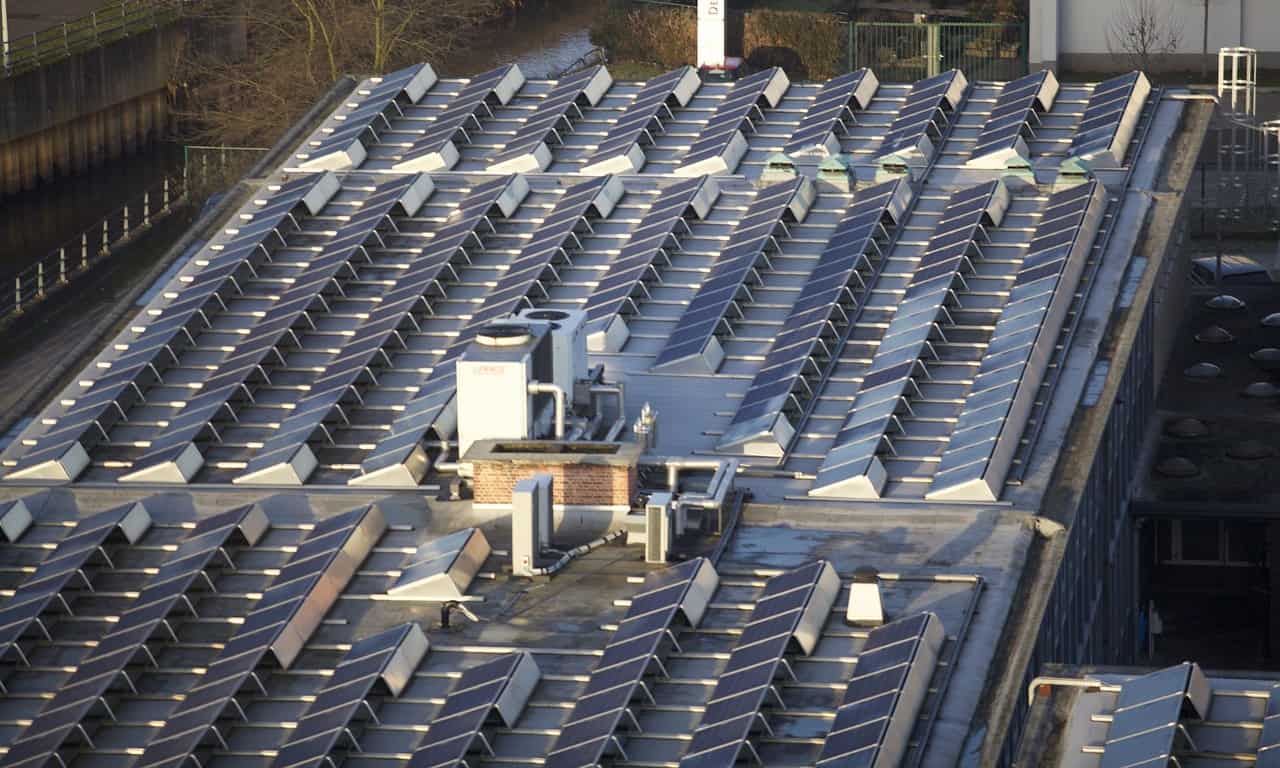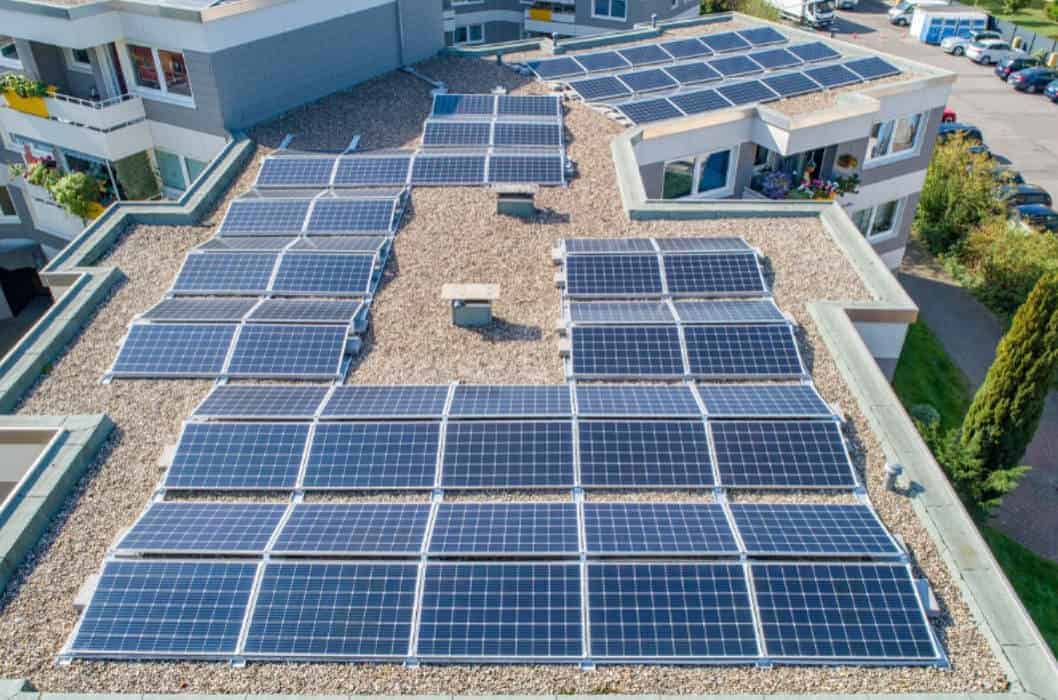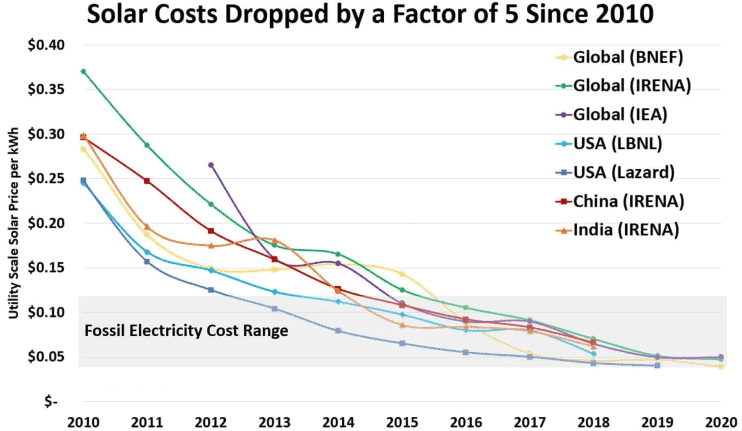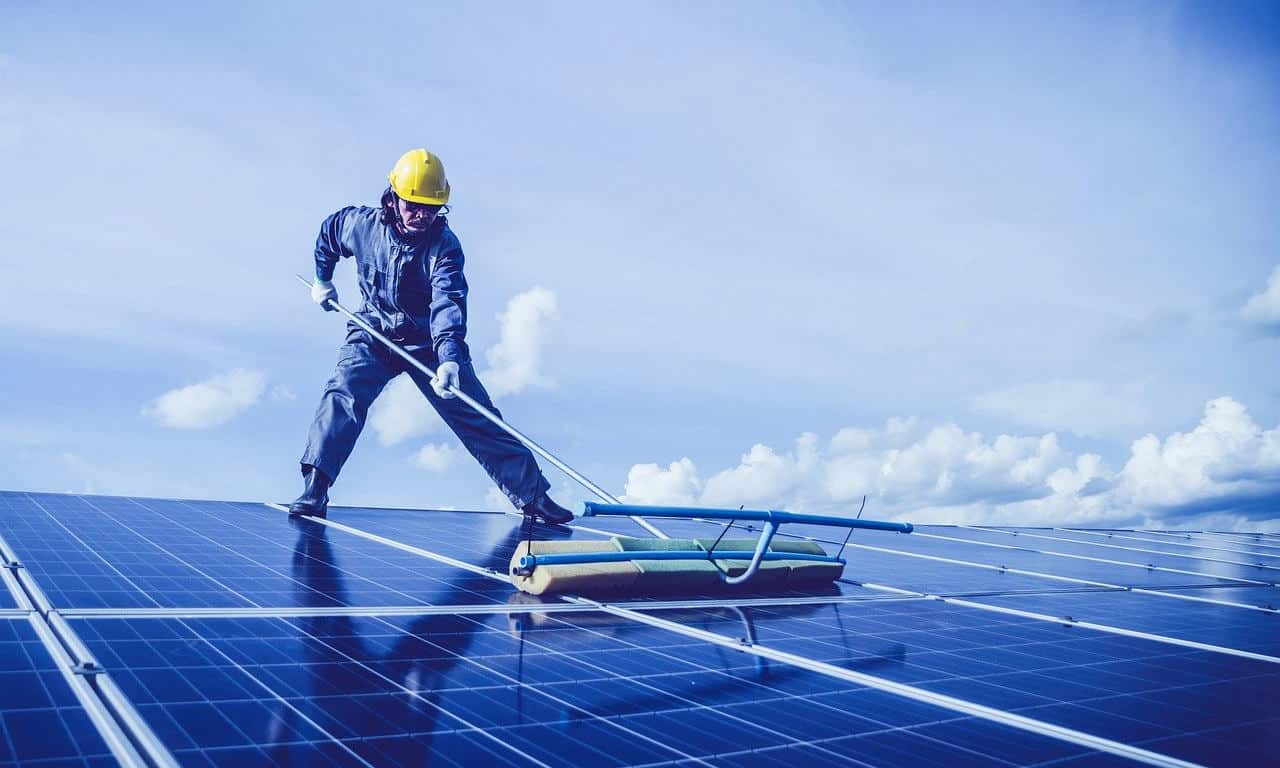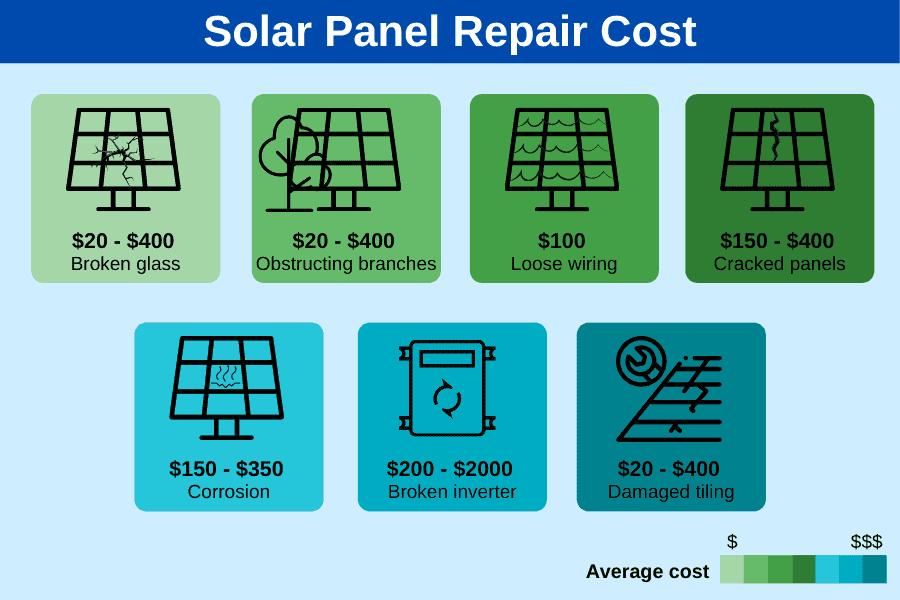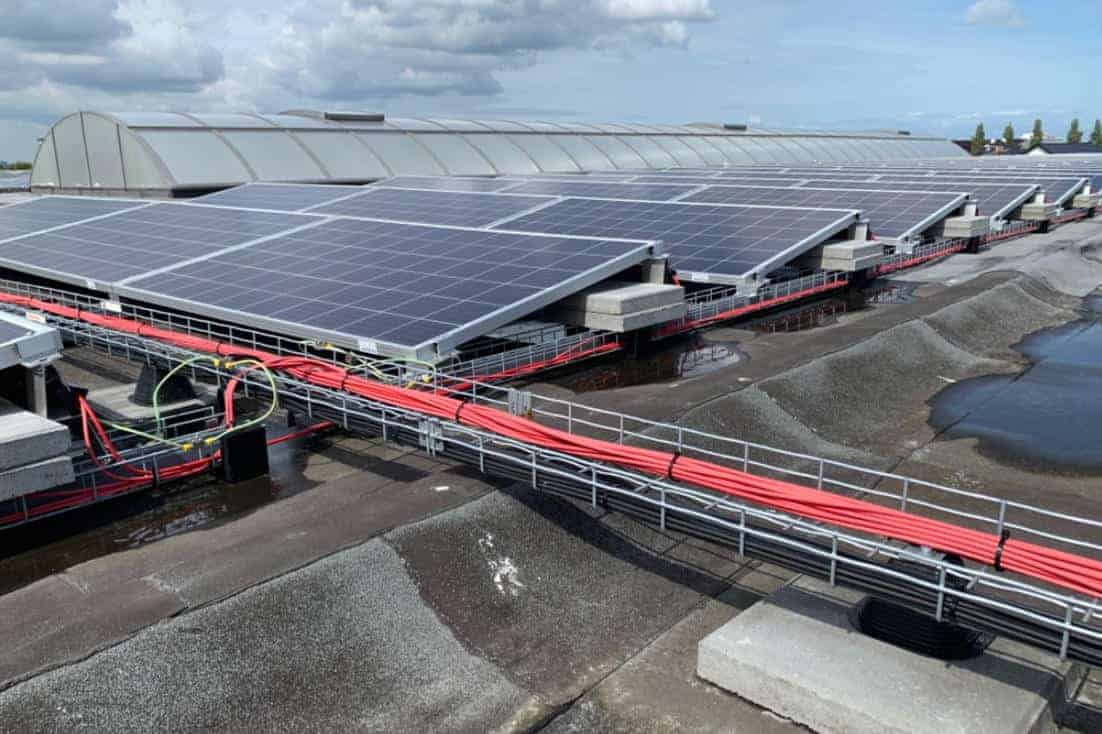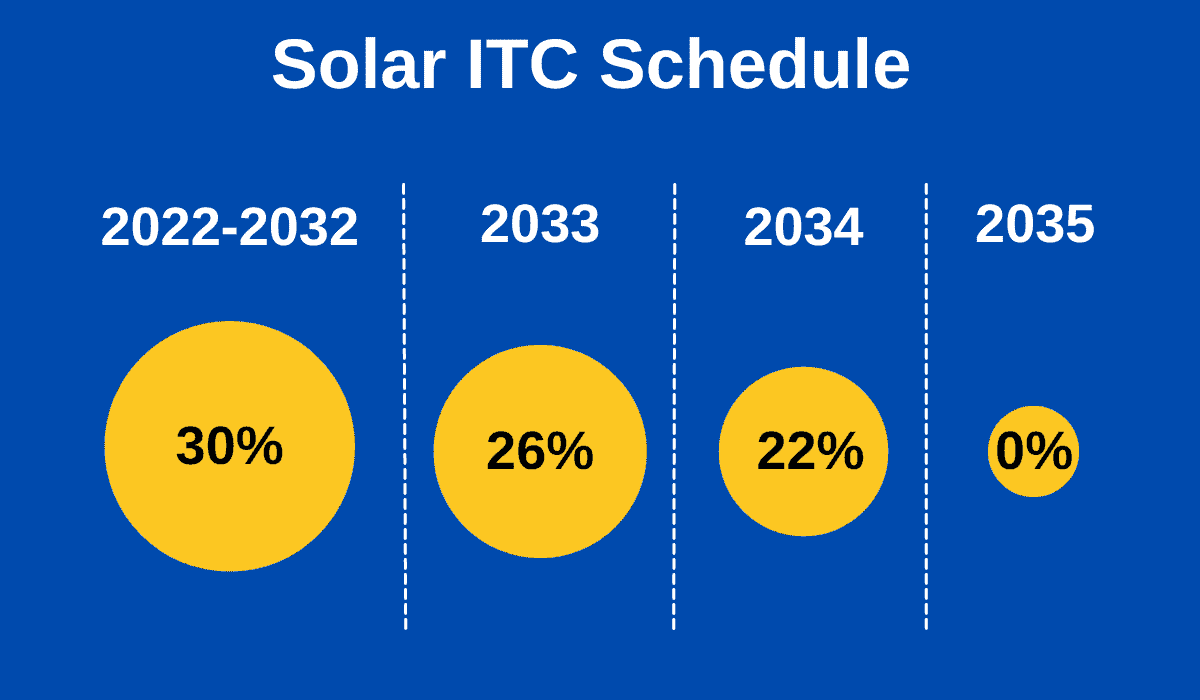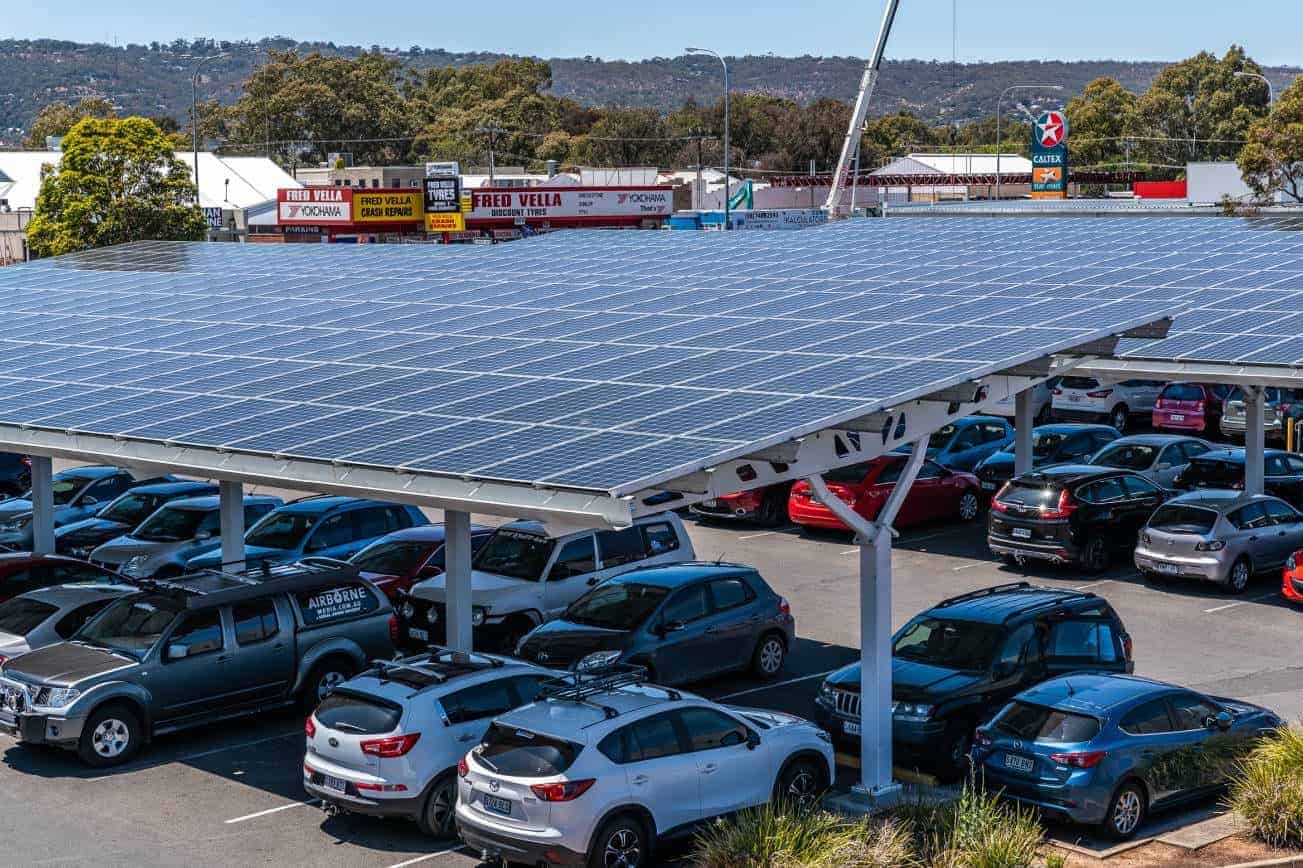Do you ever wonder why Tesla, Toyota, and Apple among other leading companies are powering up all their plants with solar power? It’s because they commit to making the world better with green energy, and rake in the benefits that come with this!
So, why should you use solar panels for businesses? Cut your power costs, reduce your business carbon footprint, and escape the electricity fluctuations with an off-grid solution. If your business runs during the day- like most companies, do- you’ll reap lots of benefits from these panels. Manufacturing companies that require high power input save lots of electricity bills by going green.
The average price of a kilowatt-hour of residential electricity in America is about 10 cents, 2 cents cheaper than commercial price. However, the prices of mainstream electricity fluctuate from state to state and time.
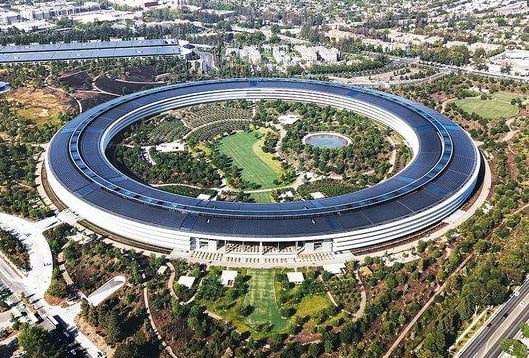
According to the Energy Information Administration, the prices of electricity could potentially increase in the future, influenced by a variety of economic and market factors.
Yet, the price of solar power for your business has dropped by 45% since 2010. In the last decade, the cost of solar panel system installation and maintenance has dropped by an overwhelming 75%- from $3.31 a watt to around 85 cents.
Certainly, now is the best time to make the switch
Which Business Needs Commercial Solar Power?
If you work at a place that receives enough sunshine to bask in, solar power is certainly ideal for your business. However, you have to look at the taxes, policies, and incentives in your jurisdiction. As long as the laws of your country or state are friendly to solar energy, you should dive right in!
If your business is power-sensitive, you need a perpetual supply of power. The grid, however, isn’t reliable as it goes off anytime without notice. IT companies, hair salons, and manufacturing industries will certainly enjoy the stability of solar energy.
Why You Should Install Solar Panels For Business
Many entrepreneurs are increasingly embracing green power over fossil fuels and the grid. As a sustainable source of power, solar is taking over homes and offices. The sun illuminates our side of the Milky Way, and; it could do the same to your business as well!
Going solar sets your business up for lots of benefits, too. See how you could solar up your business to the next level!
Reduce electricity bills by over 95%
Climate change, fuel prices, and stiffer legislation continue to make the prices of power rise at an exponential rate. The U.S. Energy Information Administration explains that the grid is becoming more expensive to maintain and it’s causing ripples in the energy prices.
Interestingly, the report further shows that power prices skyrocket during the summer. More people use power during the summer. The total demand for energy is so high during this time that people resort to expensive generation procedures to fill in the void.
Reports estimate that the cost of producing a megawatt-hour with solar panels can vary greatly, potentially being less expensive than the regular methods of power production. The World Economic Forum (WEF) also affirms that the price of installing solar panels is far less than that of fossil fuels.
In the end, the prices of solar power tend to be cheaper than conventional power. However, the solar panel installation cost can be a little expensive due to the economy of scale.
Installing solar panels for your business will be one of the most prudent decisions you make.
Up to 20% Guaranteed Return on Investment
Some businesses take loans to finance their solar panel installations, while others use cash. Cash deals tend to yield more return on investment than loans because they attract more rebates, incentives, and tax credits.
However, not all businesses can keep up with the upfront capital investment. The government and special interest groups are aggressively campaigning for solar power. In a bid to encourage citizens to move away from fossil fuels, governments are offering tax incentives.
Some organizations will even give you grants to install solar power for your business. Then, you may enter into a Power Purchase Agreement (PPA) with a solar energy provider to help them build the panels on your property. PPAs take about 10 to 25 years, where the developer maintains the system. You can extend the contract after the expiry date, or you can have the systems uninstalled.
Plus, you have a free source of power for as long as the panels can produce electricity. The lifespan of most solar panels is between 25 and 35 years. Installing solar systems makes your business say goodbye to power bills for a quarter-century!
Minimum maintenance costs
Solar power is mostly a long-term investment that needs little maintenance. And, even though you’ll be doing a few maintenance activities here and there, they are still incomparable to what other sources of energy demand.
An annual inspection routine and regular cleaning keep the panels working efficiently. Seek professional cleaning and maintenance and remove any overhanging tree branches. Again, you may replace worn-out inverters, battery storage equipment, or any faulty panel.
If you have 20 panels, the costs fall around $450 for a 2KW solar system. While the minimum fee is around $150, the highest is $1000.
This table summarizes the cost of maintaining 2KW solar systems:
| The average cost per maintenance session | $450 |
| Range of maintenance cost | $350-$750 |
| The minimum cost of a maintenance session | $150 |
| Highest recorded cost of maintenance | $1000 |
During cleaning, you may have to pay between $15 and $35 for each panel.
Then, the inspection will cost you between $150 and $300.
The costs of repairing solar systems depend on the nature of the damage. For instance, if you have broken glass, you may have to pay as much as $400.
Branches that shade off your panels from the sun may go for $40-$200 depending on their number.
Finally, when you have a problem with tilling or faulty inverter, you will part with about $1500 and $2500 respectively.
Power Security and 0% disruption to your business
The grid is already going through challenges as it scuffles to supply enough power for the demand. Several governments are working to force businesses to adopt saving strategies.
Such legislation is brilliant from a governmental point of view, but; it could limit your options.
With solar power, you don’t have to rely on the grid all the time. And, the solar systems provide a seamless backup and a lifetime source of power. Only natural disasters threaten PV systems.
If you belong to a power-sensitive industry, you may want to have enough solar panels to run off the grid without disrupting anything.
Minimal investments
Solar systems are reliable, easy to maintain, and come with low-risk investments. The cost of starting a PV system is far cheaper than that of fossil fuels.
And, although you have to part with a hefty amount (of about $200,000), it will take you several decades before you need a system replacement.
Rebates and Solar Incentives
And, although it can be tasking to finance the initial solar system installation, you can use the incentives and rebates. Many governments in America and around the world are slicing taxes levied on solar system equipment.
In 2024, Americans who installed a solar system received a 30% credit from the federal government, which is known as the Investment Tax Credit (ITC) or the federal solar tax credit. This credit allows you to apply 30 percent of your solar energy system’s cost as a credit to your federal tax bill. This 30 percent tax credit will be available until 2033.
The government continues to encourage citizens to expand solar power production by reducing the cost by nearly half.
Other incentives you get include performance-based incentives (PBI), which recompense producers for every kilowatt-hour they produce. Sometimes, you even get a 20% rebate for every purchase you make.
Pick the endless hanging fruits!
According to a survey reported by CNBC, 74% of its respondents believe that human actions are to blame for climate change. The survey also showed these respondents favored solar power over traditional sources.
Further, people around the world are looking to go green, and; if your business runs on solar power, you might attract a large number of customers.
A Nielsen Research study found that over 56% of respondents were ready to pay more for products from green companies. Also, 52% agreed that they bought products because they were from companies that left little or no carbon footprints in the manufacturing process.
Choosing Solar Panels For Business
Going green isn’t an overnight decision to which you wake up the investment requires careful calculation. Before you wire your investment cash, consider the quality, output, and feasibility of the PV solar systems you install.
First, how long are you staying at the business premises?
Ideally, the investment will take about five years to mature. So, you should have the patience to operate within the business premises for the next decades. The solar system is a long-term investment, and; you have to exercise patience if you want to rake in the returns.
Calculate the amount of power your business needs
Your rooftop determines how many panels you can install, but; it’s the power requirements of your business that will ultimately decide the amount of power you can have.
Unless you want to sell some to your local power company, you may want to have just enough. Also, you can store the surplus power produced during sunny days and use it when the clouds dim the sun.
The pricing
Pricing forms the heart of every business decision. See if the costs make sense from an accounting point of view.
Look at your long-term goals and determine whether solar panels would fit your budget. Of course, the solar systems will pay off in the long run, which is why you may need a grant.
Eligibility for grants, rebates, and tax benefits
Check with your state if your business hits the threshold for solar financing. Some states such as California have tax credits, and you may want to grab the opportunity.

